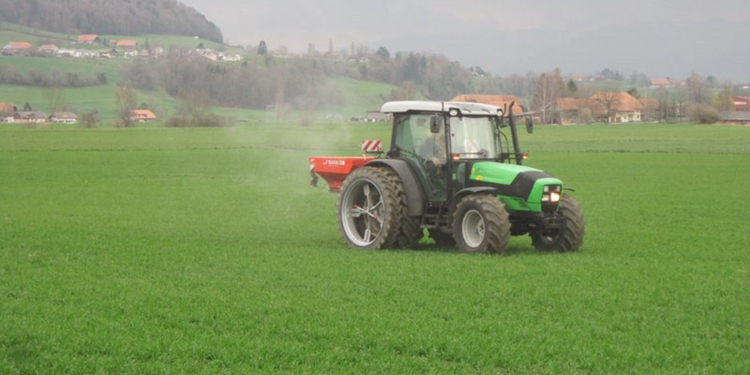Some countries use extremely large amounts of nitrogen fertilizer, but still only get a little more yield out of it. This is what researchers with the participation of ETH Zurich report in the specialist magazine “Nature Food”.
Plants need nitrogen to grow. However, if a field is fertilized with too much nitrogen, some of it will also be released into the environment. This affects biodiversity, the climate and it is harmful to health. Read more about the difficult relationship between agricultural production and nitrogen as the most important plant nutrient on land here.
Now, for the first time, an international team of researchers has compared nitrogen pollution and crop yields in almost all countries around the world, as reported by ETH Zurich . According to this, many countries could reduce their nitrogen use without losing their income. On the other hand, when the use of fertilizer is higher, the pollution is far more significant than the additional yield from harvests.
Imbalance in the world
In addition, there is a large imbalance in nitrogen resources worldwide, the authors write. While too much fertilizer is used in many regions of the world, farmers use too little elsewhere, for example in sub-Saharan Africa. With just a little more nitrogen, however, they could increase their yields.
In order to remedy the imbalance, the fertilizer should be made more expensive in countries that use a lot of nitrogen, but cheaper in others thanks to subsidies, as the researchers suggest.
Switzerland is not a model student
As in other European countries, too much nitrogen fertilizer is still being applied in Switzerland, so that the fertilized crops cannot absorb the full amount of the nutrient. According to the Federal Statistical Office, the nitrogen surplus on agricultural land in Switzerland has averaged 100,000 tons per year over the past ten years. No downward trend can be seen.
Nitrogen from abroad
The ETH researchers describe Swiss agriculture as “very intensive”. When animals in this country are supplied with imported fodder, their manure and manure also bring nitrogen from far outside the system onto the fields. Therefore, a reduced meat consumption helps against too much nitrogen in our ecosystems: Less demand leads to fewer animals that produce less fertilizer, which consequently no longer has to be applied.
New technologies could help
The state could also support those farms that use less nitrogen and pay them compensation for the loss of yield.
They put another hope in new technologies: “The keyword is precision agriculture, in which, for example, fertilizer is only applied where it is actually needed,” concluded co-author and agricultural economist Robert Finger. This could increase the efficiency of the operation and reduce environmental problems without shrinking production. An example of such an approach is the drone project at the Swiss Future Farm.
However, the researchers also hold consumers accountable: Less food waste and meat would help reduce nitrogen input into the environment.





